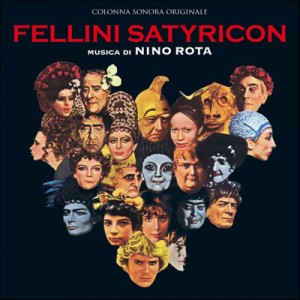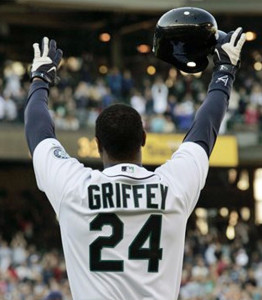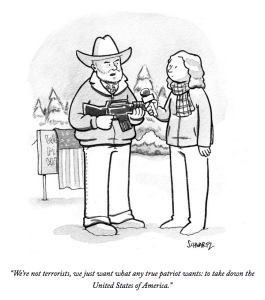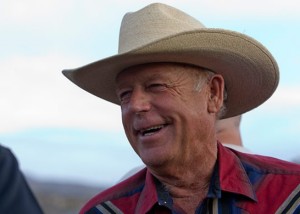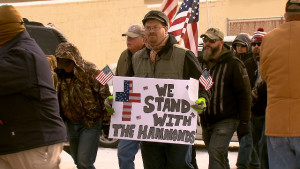“I have never understood the Iowa caucus…”
Larry King, famous political analyst
——-
I blame Jimmy Carter, well, actually Rosalynn Carter. For Iowa, I mean.
Fresh out of college in 1975, I landed my first radio reporting job at a 10,000 watt giant of an AM radio station in Oelwein, Iowa – The Hub of Northeastern Iowa. Oelwein, population today about 6,500, is named after a local farm family and was carved out of Iowa corn country right after the Civil War. It was, and is, an exciting place, as Iowa farm communities go.
Radio station KOEL – 950 on the dial – played country western music and I was the third man on a three man news staff. It is now completely amazing to me that a small market radio station in the middle of Iowa farm country had a three person news department, but in 1975 KOEL did. I had a job, an apartment above the TruValue hardware store and a shift from 10 am until 6 pm – no breaks, just radio.
My job had two major components, one that occupied virtually all my time and one that made me a star, well not really a star, but at least got me a listening audience.
Job One was to sit at a triangle shaped desk in the newsroom – the news director on one side of the triangle, me on another, the third side for the morning news guy – and work the phone. I dialed literally hundreds of calls every day drawn from phone numbers on cards in the largest Rolodex I have ever seen. Numbers for every county clerk in northeastern Iowa, every city hall, the fire and police departments, the schools, the VFW halls, every place that people gathered and news might be committed. I’d dial the numbers and ask the poor schmuck on the other end something clever, like “anything happening with the Decorah city council?” An overwhelming percentage of the time the answer was, “pretty quiet.” But, once in a while some city clerk or secretary to the county commission would say, “Well, last night we voted to upgrade the sewer treatment plant – is that news?” Yes, thank you; that is news.
I’d type up the details and KOEL would tell the world about the sewer upgrade. It wasn’t exactly Pulitzer Prize stuff, but it was news in northeastern Iowa, along with the pickup-tractor collisions, the deaths of prominent farmers, the broken water mains and the occasional armed robbery of a gas station or marijuana bust.

My fifteen minutes of fame came at 12:15 pm every week day when I settled into the news booth to deliver The Midday Market Report! For fifteen long, long, long minutes, I read the market reports from South Sioux City, Sioux Falls, Omaha, South St. Paul, etc. etc. I still envision those bib overall wearing Iowa farmers sitting at the kitchen table eating lunch and hanging on my every word. I didn’t – and still don’t – know a barrow from a gilt, but those farmers, I knew, were counting on my reporting.
Occasionally, just for color, I’d throw in an item from the Chicago Mercantile Exchange, or casually mention that Cargill had made news, but mostly it was numbers and vaguely familiar terms: bushels and futures, corn and soybeans, barrows and gilts. It wasn’t Ed Murrow reporting the London Blitz, but I had a microphone and an audience and my soybean futures.
Then, as if by salvation, I was delivered from yet another call to another city hall in another little Iowa town. Rosalynn Carter came to Oelwein.
I had the bright idea to actually grab a tape recorder and go out of the station, leave my phone of all things, and interview her. Her mostly unknown husband, the former governor of Georgia, was spending a lot of time in Iowa in 1975 acting out a crazy strategy aimed at winning something called the Iowa Presidential Caucus.

The news director was dubious. It would mean time away from my calls and taped interviews were rare on KOEL, which placed a premium on important stuff like a two car collision, in which no one was injured, just outside of Strawberry Point. It must have been a slow news day because he finally said – OK, go do it.
I went to a senior citizens center or an Elks Club or some such place and asked clever questions of Rosalynn – “So, what brings you to Oelwein, Mrs. Carter?”
What brought her, of course, was Jimmy Carter’s strategy to go from unknown former governor – Jimmy Who? – to presidential contender by focusing, laser-like, on the first contest of the 1976 campaign, while pretty much every other candidate, better known figures like Senator Henry Jackson and Congressman Morris Udall, weren’t paying attention, at least to Iowa.
The Iowa caucus had been around since, like, 1840 but until Carter – George McGovern gets a little credit in 1972 – no one paid much attention. Jimmy Carter changed all that.

As Julian Zelizer writes in The Atlantic, “From the start, the key to [Carter’s] strategy revolved around Iowa. Carter believed that if he could influence media coverage of his candidacy through a victory in Iowa, he would be treated as a serious candidate, making it easier for voters in subsequent contests, like New Hampshire, to vote for him. The actual delegate count from Iowa was less important than the kind of media coverage his victory would produce.”
Media coverage is exactly what I provided, well, provided to the candidate’s wife, but this was Oelwein, not Waterloo or Cedar Rapids or Des Moines. I still think it was neat that Rosalynn Carter came to Oelwein, a town you need to want to visit. I remember she was very polite, reserved and generous with her time. A very rookie reporter remembers such things. I imagine another candidate in a different time – you know who I mean – would have thought the young guy with the Sony recorder was a sorry “loser,” but Mrs. Carter patiently answered my not-so-probing questions.
The rest is history. Carter launched his road to the White House in Iowa in 1975. I was in on the ground floor (well sort of).
If you are already tired of hearing about the next presidential election, just blame my first news director. He gave me a few minutes away from the phone to interview the next First Lady of the United States of America. Iowa has never been the same.




